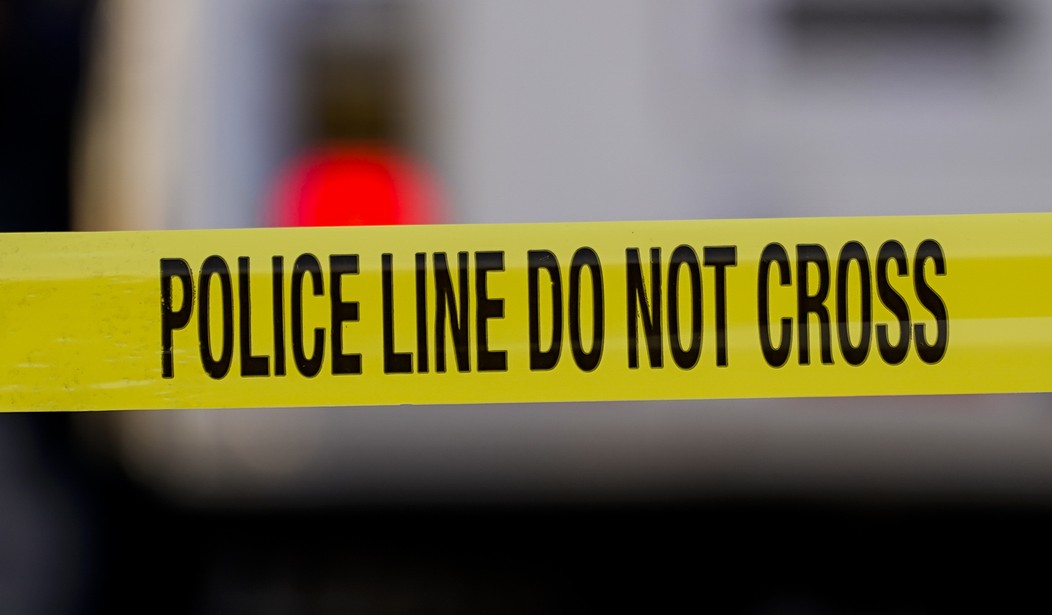A Ukrainian refugee fled a war zone, crossed an ocean, and came to America for safety. Instead, she found herself stabbed to death on a Charlotte light rail train. Her final moments, captured on chilling surveillance video, should shake us to our core.
The woman had escaped Putin’s bombs only to meet her end at the hands of a repeat offender set free again and again under the banner of “restorative justice” and “racial equity.” This wasn’t random. It was preventable. And it happened because too many leaders in our cities have convinced themselves that empathy for criminals is more important than protection of the innocent.
Fox News reported that the suspect, Decarlos Brown, had a long rap sheet. Arrested repeatedly. Released repeatedly. The pattern is familiar: progressive judges and district attorneys who seem more interested in showcasing their enlightened empathy than in delivering justice. The result? A violent man left free to ride trains, free to attack strangers, free to kill.
Empathy can become toxic. What begins as compassion for the “marginalized” morphs into leniency for predators. Criminals are recast as victims, while real victims are erased. The very people crying “equity” create disorder, chaos, and death.
Incredibly, Charlotte’s mayor responded by urging citizens not to “demonize homeless people.” She framed the murder as a mental health crisis, not a crime. Of course mental illness is real. But not every evil act can be swept into the category of “disease.” Some people do wicked things because they are wicked. And leaders who refuse to acknowledge evil allow it to fester.
“Because the sentence against an evil deed is not executed speedily, the heart of the children of man is fully set to do evil.” (Ecclesiastes 8:11) Delayed justice encourages more injustice. Refusing to punish wrongdoing breeds more wrongdoing. That’s not just common sense; it’s biblical wisdom.
Recommended
Brown had been booked again and again. Each time he was let back out. Each time the system told him his actions carried no real consequence. Progressive ideology insists that swift accountability is oppressive, that harsh sentences are unjust, that compassion demands second and third and twelfth chances. But compassion without truth is cruelty. Meanwhile, ordinary citizens are terrorized. A young woman seeking refuge from tyranny is butchered. Children walk past open-air drug markets on the way to school. Women in cities across America avoid public transit for fear of predators who should be behind bars. This is not justice. It’s not equity. It’s cowardice dressed up as kindness.
Politics matters because policy matters, because people matter. Every vote for a “compassionate” progressive prosecutor is a vote to sacrifice innocents on the altar of ideology. Every time voters reward officials who boast about empathy for criminals, they guarantee cruelty for victims. The Ukrainian woman killed in Charlotte should be alive today. Her blood cries out from the tracks of that light rail car. And yet her story will be forgotten quickly in political circles because it doesn’t fit the narrative. There will be no marches in her name, no professional activists demanding justice. Why? Because her killer doesn’t check the boxes necessary for outrage in our corrupted cultural system.
This is the hypocrisy that was exposed after George Floyd’s death. Many “apolitical” evangelicals shouted about systemic racism when a black man died at the hands of a white officer, but remain silent when a white woman is murdered by a black assailant. The inconsistency exposes what this is really about: power, not principle.
Let’s be clear: not every crime is racially motivated. We don’t know Brown’s heart. But we do know this—some actions are evil, period. And when leaders refuse to name evil, they enable it. When churches choose silence because the facts don’t match their preferred storyline, they betray their calling. We cannot arrest our way out of every problem, but neither can we “compassion” our way out of evil. Some individuals must be restrained. Some crimes demand capital punishment. Genesis 9:6 could not be clearer: “Whoever sheds man’s blood, by man his blood shall be shed.” This isn’t vengeance; it’s justice. Swift, certain accountability preserves life by deterring evil.
The Charlotte stabbing forces us to ask: whose side are we on? The side of victims, safety, and order—or the side of criminals, chaos, and decay? Do we stand with leaders who excuse and release, or with those who punish and protect? Empathy may sound virtuous, but when detached from truth it becomes a weapon against the innocent. The Ukrainian refugee believed America was a place where good triumphs over evil, where the vulnerable are shielded, not sacrificed. That dream died with her on that train.
We owe it to her—and to every future victim—to reject toxic empathy and demand policies rooted in reality. Justice must be swift. Punishment must be certain. Leaders must stop excusing evil and start restraining it. Because at the end of the day, this isn’t just about crime policy. It’s about whether we believe in the existence of good and evil. Evil is real. It destroys. It takes lives. Good is real. It protects. It restores. The clash is as old as time. Charlotte reminds us that the side we choose will determine whether our communities are safe havens for the innocent—or hunting grounds for predators.
And in that choice, may we finally have the courage to stand with the good.
Editor’s Note: The Democrat Party has never been less popular as voters reject its radical agenda.
Help us continue exposing Democrats' plans to lead America down a dangerous path. Join Townhall VIP and use promo code FIGHT to get 60% off your membership.

























Join the conversation as a VIP Member